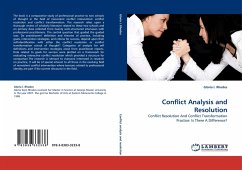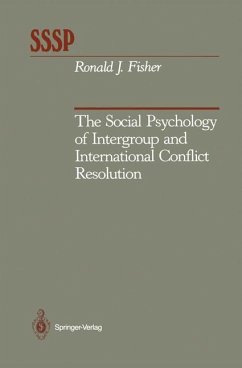
Filicide: A Conflict Resolution Perspective
Families in Crisis
Versandkostenfrei!
Versandfertig in 6-10 Tagen
52,99 €
inkl. MwSt.

PAYBACK Punkte
26 °P sammeln!
This mixed methods research examines the phenomenon of filicide, which is defined as the murder of children by their parents, from a conflict resolution perspective. Previous research has investigated filicide across a variety of contexts including legal, social, and cultural but not from the viewpoint of managing and resolving intra-family conflict. The goals of this research are to provide additional insight and practical applications for professionals who come into contact with those families at high risk for incidents of filicide by expanding the traditional definition of family to include...
This mixed methods research examines the phenomenon of filicide, which is defined as the murder of children by their parents, from a conflict resolution perspective. Previous research has investigated filicide across a variety of contexts including legal, social, and cultural but not from the viewpoint of managing and resolving intra-family conflict. The goals of this research are to provide additional insight and practical applications for professionals who come into contact with those families at high risk for incidents of filicide by expanding the traditional definition of family to include genetic and non-genetic parents; by expanding the classification of motives for filicide to include both instrumental and expressive motivations according to the type of parent; and by examining the gender differences existing in the degree of planning during the commission of the filicide.












